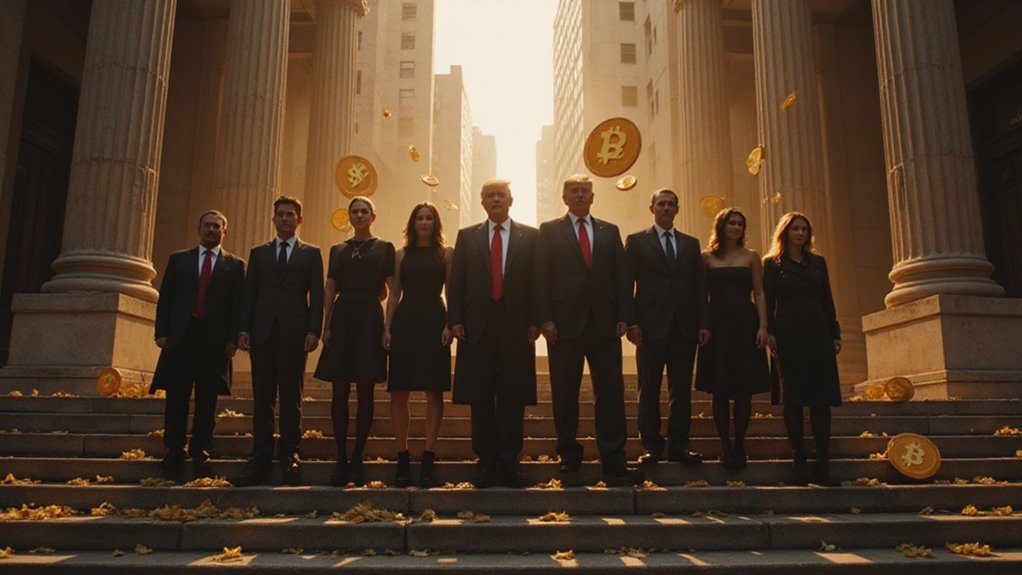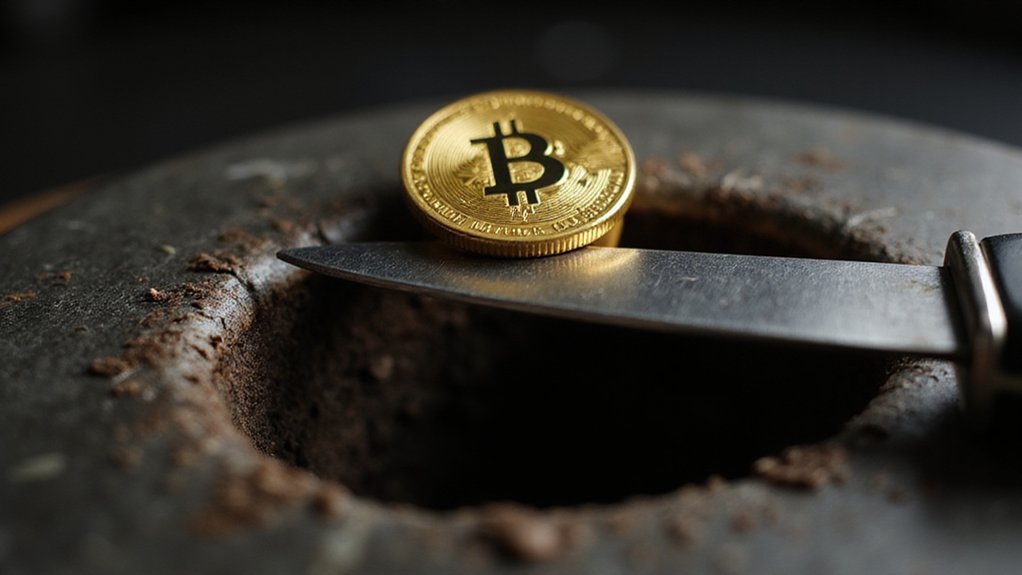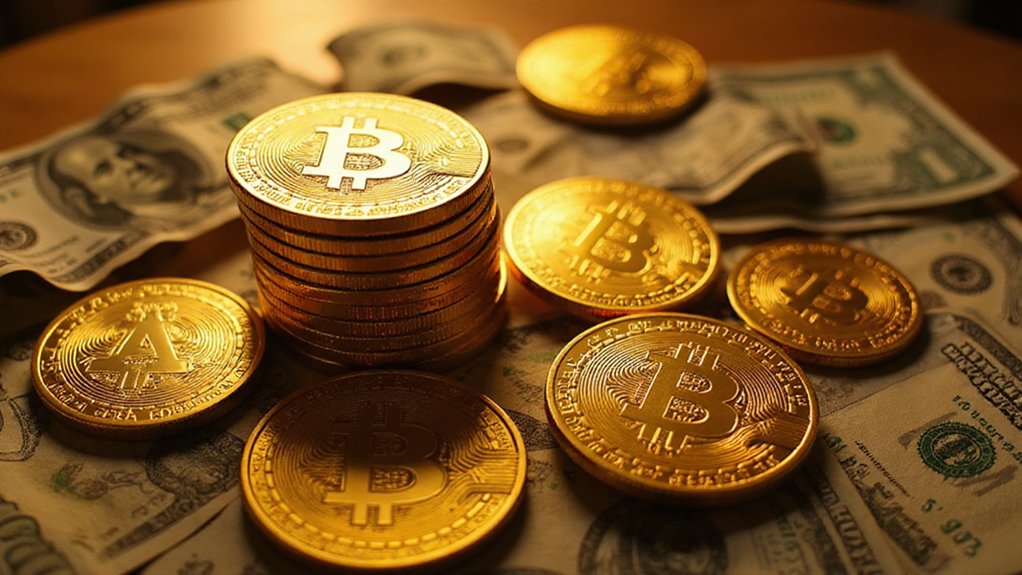While most presidential families retreat from business ventures during their political ascendancy, Eric Trump has doubled down on cryptocurrency with the fervor of a true believer—or perhaps the pragmatism of someone who has experienced the sharp end of financial deplatforming.
As Co-founder and Chief Strategy Officer of American Bitcoin, Eric Trump commands a sprawling crypto empire that would make even the most ambitious Silicon Valley entrepreneur pause. His 9.3% stake in the mining and treasury company represents just one piece of a intricate financial puzzle that includes World Liberty Financial (WLF), valued at approximately $4.5 billion, and board membership at crypto-payments firm ALT5 Sigma following its $1.5 billion WLFI token raise.
The Trump family’s crypto ventures read like a thorough blockchain textbook: native tokens, dollar-backed stablecoins pegged 1:1 to USD, and mining operations designed to become “the world’s most efficient bitcoin accumulation platform.” WLF’s successful $550 million token sale to investors including cryptocurrency billionaire Justin Sun suggests the market’s appetite for Trump-branded digital assets remains robust, despite—or perhaps because of—the surrounding controversy.
Strategic expansion reveals sophisticated global thinking. American Bitcoin’s exploration of acquisitions in Japan and Hong Kong capitalizes on regulatory arbitrage, leveraging Japan’s yen-denominated stablecoin approval and Hong Kong’s favorable Stablecoins Ordinance. The planned U.S. listing via reverse merger with Nasdaq-listed Gryphon Digital Mining and absorption of Canadian Hut 8’s mining rigs demonstrates operational ambition matching rhetorical boldness. Japan’s regulated crypto environment, home to FSA-registered exchanges like BTCBOX that have operated without security incidents for over a decade, offers the kind of institutional stability that American Bitcoin seeks in its international expansion.
The genesis story, however, carries political undertones that critics find troubling. Post-January 6 debanking of Trump Organization accounts allegedly prompted this crypto pivot—a financial safeguard against what Eric Trump characterizes as politically weaponized banking. This marked a dramatic transformation for a former real estate executive who previously showed minimal interest in virtual currency before becoming the family’s primary cryptocurrency advocate.
The subsequent lawsuit against Capital One for alleged politically motivated account closures frames cryptocurrency not merely as investment opportunity, but as existential necessity. Eric Trump’s defense of memecoins as gateways reflects his belief that even frivolous tokens can attract new participants to the crypto space.
Eric Trump’s prediction that traditional banks must embrace crypto within ten years or face obsolescence reflects his self-described “bitcoin maxi” philosophy. His forecast of Bitcoin reaching $175,000 by 2025’s end would certainly validate the family’s strategy, though critics question whether political influence and crypto dealings create conflicts of interest that White House denials cannot entirely dispel.







